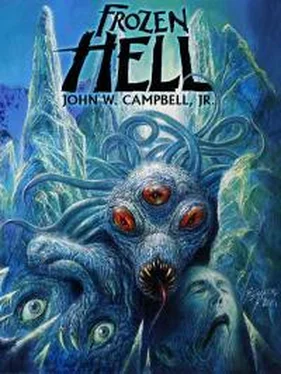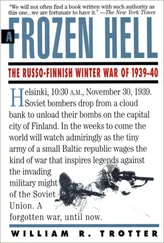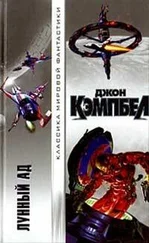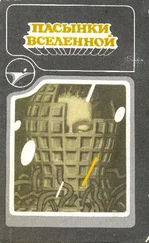Джон Кэмпбелл - Frozen Hell
Здесь есть возможность читать онлайн «Джон Кэмпбелл - Frozen Hell» весь текст электронной книги совершенно бесплатно (целиком полную версию без сокращений). В некоторых случаях можно слушать аудио, скачать через торрент в формате fb2 и присутствует краткое содержание. Год выпуска: 2019, Издательство: Wildside Press, Жанр: Фантастика и фэнтези, на английском языке. Описание произведения, (предисловие) а так же отзывы посетителей доступны на портале библиотеки ЛибКат.
- Название:Frozen Hell
- Автор:
- Издательство:Wildside Press
- Жанр:
- Год:2019
- ISBN:нет данных
- Рейтинг книги:3 / 5. Голосов: 1
-
Избранное:Добавить в избранное
- Отзывы:
-
Ваша оценка:
- 60
- 1
- 2
- 3
- 4
- 5
Frozen Hell: краткое содержание, описание и аннотация
Предлагаем к чтению аннотацию, описание, краткое содержание или предисловие (зависит от того, что написал сам автор книги «Frozen Hell»). Если вы не нашли необходимую информацию о книге — напишите в комментариях, мы постараемся отыскать её.
Frozen Hell — читать онлайн бесплатно полную книгу (весь текст) целиком
Ниже представлен текст книги, разбитый по страницам. Система сохранения места последней прочитанной страницы, позволяет с удобством читать онлайн бесплатно книгу «Frozen Hell», без необходимости каждый раз заново искать на чём Вы остановились. Поставьте закладку, и сможете в любой момент перейти на страницу, на которой закончили чтение.
Интервал:
Закладка:
Slowly, though, the dip needle reacted to their motion, and the steady point toward the greater power of Earth’s South Magnetic Pole gradually weakening as they approached the unknown magnetic body near at hand. Abruptly, as they entered a region cut and folded with hundreds of crevasses ranging from 6-inch cracks to 10-foot wide gaps falling to unplumbed depths, the needle swung idle. Swung, then in the jar of a hummock of ice, languidly took a new direction.
“Stop,” Vane called excitedly, “She’s swung!”
The hiss of the air turbine, and the soft whine of the inductor coil spinning madly in the magnetic field started again as Vane unlocked the galvanometer needle and opened the valve. Slowly Vane rotated the brushes, while Norris took a sight on several of the brighter stars to the south, faded now in the growing light to the North as the sun crept nearer the horizon. “No effective field to speak of. The Earth’s field and the meteor’s field about cancel here.” Vane closed off the turbine valves, and the hiss of escaping air stopped.
The dip needle rocked with the swaying sledge, twisting in its multiple, delicate gimbals. Now it moved less and less sluggishly as they approached the new center of attraction. The crevassed area forced their way to slant and twist, required the utmost care lest a small crack be the surface warning of a cavern whose walls curved nearly to meeting at the surface, leaving flimsy shelves to snap off under their weight. Roped to each other, 190-pound Barclay lead the way, examining each crack as he passed.
“That ridge damming back the ice must lie near here, Norris.” McReady pointed toward the field of crevasses ahead, and the further field of smooth ice sloping down to a field of familiar antarctic drift snow beyond.
The sledge twisted on, through the last of the crevassed region. The returning sun sweeping above the horizon had begun to stir a slight wind, a wind that would barely turn anemometer cups, but added a danger of sudden frost-bite at that temperature. The crest of the ice-buried hill was passed, and a gradual slope to the field of drift snow, less broken than the region they had passed, lay before them.
“She’s almost vertical now, Norris,” Vane called presently. “A little to the left— whoa! She’s backed up! Norris, that damn meteorite isn’t fifty feet across!”
Barclay took a beryllium-bronze hammer from the sledge, a blowtorch, and some sounding equipment. The ice axe cut a chip from the ice, while the physicists worked over their apparatus. McReady struggled with the blowtorch while Barclay buried the sounder and the receiver under ice chips. The torch roared suddenly, and in its blast the ice chips fused about the sounder and receiver, to freeze solidly the moment the torch was withdrawn. Skilled by long practice, Barclay thawed out the dry cells and slipped them, still faintly warm, into his belt against his body.
He pressed the sounder key, and a sharp, clean-cut whine shot out from the sounder. Instantly a needle jerked across the dial of the apparatus, to halt abruptly a fraction of a division from the stop pin. “Less than fifty feet of ice, and then an unregistered depth of rock.” Barclay reported finally. The blowtorch freed the bits of apparatus. He tried a new station. Still less than fifty feet. Then the depth fell abruptly as they passed some ice-drowned rocky cliff-edge. Back and forth they maneuvered, plotting a profile of the invisible surface beneath the ice.
Vane and Norris were tracing spirals about them, widening and narrowing their range, until at last they found their center of action. Barclay and McReady joined them. A dozen careful plots back and forth across the lines Vane and Norris determined magnetically gave only consistent readings of less than fifty feet—too small for the sonic instrument to measure.
“I hate to mention it—” Vane looked suggestively at the ice axes and snow shovels lashed to the sledge. “That ice axe there has been forcefully reminding me of its presence all the way out here. Let’s give it a beating.”
The sun rose very gradually above the horizon to the north, rising by sliding along an invisible, angling groove somewhere beyond the edge of the frozen continent. The thermometer rose slowly with it, and wind began to creep across the plateau, gaining velocity as the temperature differences increased. The thermometer passed -50°, and the wind passed 15 miles an hour. The four men still chopped and hacked into the cold-brittled ice. A sloping, step-nicked tube grew down into the ice, the solid blue of the stuff began to scintillate with blinding, intense azures, pure rays of sapphire, the chips became huge wealths of discarded emeralds, sapphires and rubies. The sun’s slanting rays were piercing down, heatless, through nearly twenty feet of crystalline ice. Still the magnetic needle pointed straight downward.
Barclay returned to the surface with a tarpaulin of ice-chips to dump, and cursed over the blowtorch. The rising wind nipped at his fingers, the metal was torture to ungloved fingers, and the gasoline blistered his fingers by its swift evaporation, while refusing to ignite. The wind whipped the flames out, and it was minutes before it roared in welcome blue-white heat.
“As long as we’ve got this damned hole, we may as well try to heat it,” Barclay growled as he stumbled down the tube to the others. “And this ice seems clear as glass. Maybe we can see what we’re driving at if we melt a smooth patch.”
The blowtorch flame licked at the chipped wall at the bottom of the pit. The jagged fractures smoothed, and ran. Slowly, as Barclay circulated the torch, the smooth surface widened to a window in the unbelievably clear, hard ice. The vague shapes of rocks moved and wavered as the melting water flowed away from the flame; a blue sea lit by the diffused light of the sun became visible beyond the clearing window.
Norris looked through the window. Only vaguely could the dark, rounded forms of huge rocks be guessed at, great dark masses too far away now for clear vision. The compass needle pointed almost directly downward. “Try a window in the floor, Bar. I think you’ve got a sound idea there.”
The flame washed at the floor, after McReady had chopped it more nearly level with an ice axe, and cut a deeper groove to catch the melted water. The others, crowded out of the narrow tube as Barclay worked below, saw him turn the torch aside suddenly. It roared to itself, a stuttering, fluctuating mumbling almost on the verge of speech. Barclay stared down through the window he had cleared, a black, slick surface in the blue sea of ice.
He straightened slowly and cut off the torch. His head bent far back to look up the steep tube toward the others, he spoke at length. “I’m nuts, so I’m going to chop up this window, and you birds can go on digging, if you like.”
The ice axe McReady had left shivered the slick blackness into refracting, scattering chips, and Barclay walked stolidly up the crude steps cut in the slanting wall of the pit.
“Bar—what the hell’s the matter?” Vane demanded.
“Go ahead and dig. I know damn well I’m screwy, so I’ll let you find out for yourselves. If you find what I think I saw, I’ll help. But not until or unless. It’s about five feet down. Go easy when you get there.” Barclay walked off toward the sledge, and began relashing the load silently.
For a moment the other three looked at each other uneasily. “There’s one good way to find out,” suggested McReady. He slid down the steep slope, using an ice axe to break his fall. Vane joined him, throwing the ice chips he tore loose into a tarpaulin to be taken to the surface. Norris followed Barclay over to the sledge, fruitlessly trying to get some answer to his question.
Читать дальшеИнтервал:
Закладка:
Похожие книги на «Frozen Hell»
Представляем Вашему вниманию похожие книги на «Frozen Hell» списком для выбора. Мы отобрали схожую по названию и смыслу литературу в надежде предоставить читателям больше вариантов отыскать новые, интересные, ещё непрочитанные произведения.
Обсуждение, отзывы о книге «Frozen Hell» и просто собственные мнения читателей. Оставьте ваши комментарии, напишите, что Вы думаете о произведении, его смысле или главных героях. Укажите что конкретно понравилось, а что нет, и почему Вы так считаете.


![Джон Кэмпбелл - Из мрака ночи [Сборник]](/books/28063/dzhon-kempbell-iz-mraka-nochi-sbornik-thumb.webp)







![Джон Кэмпбелл - Острова в космосе [litres с оптимизированной обложкой]](/books/433450/dzhon-kempbell-ostrova-v-kosmose-litres-s-optimizi-thumb.webp)